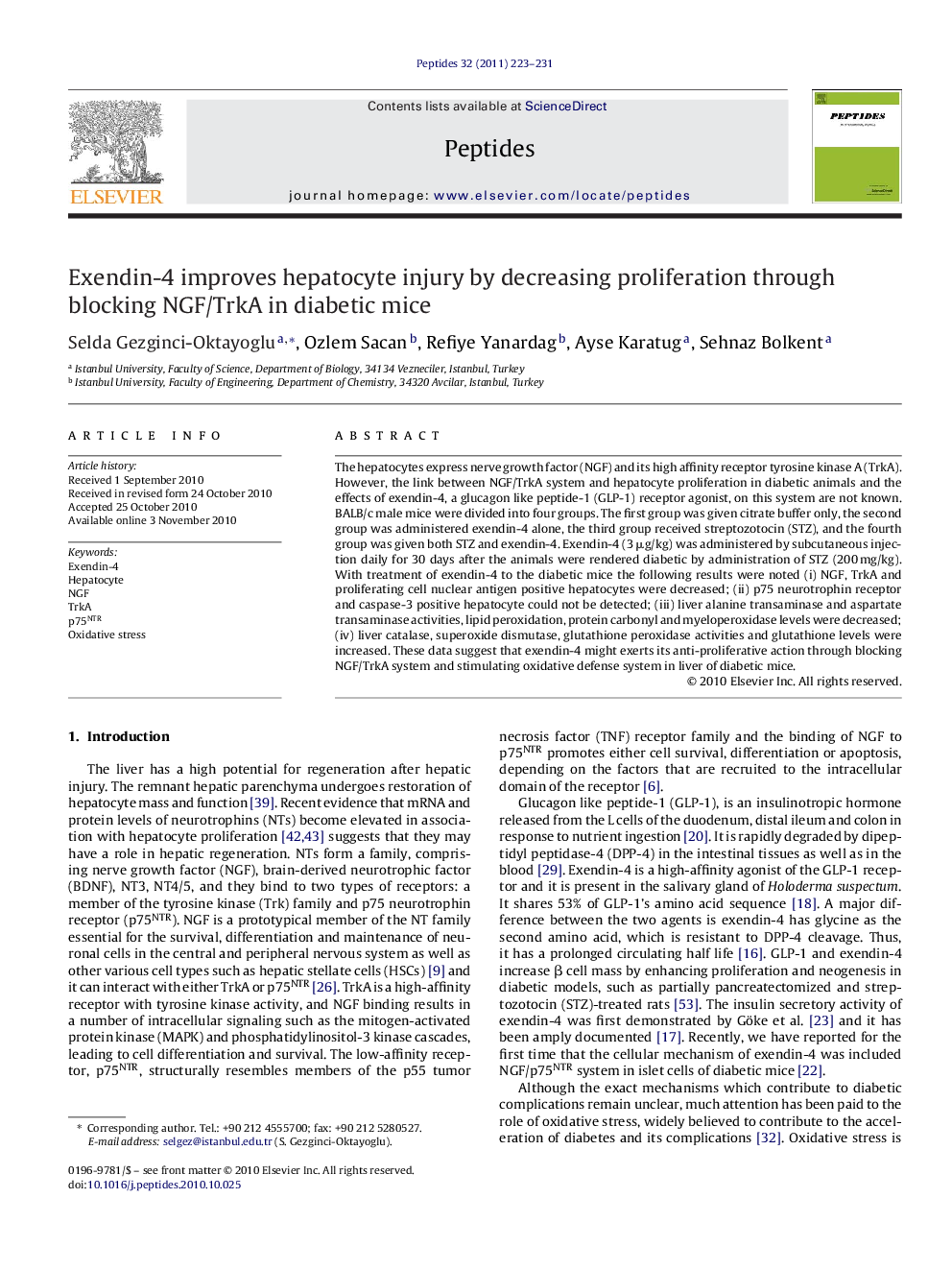| Article ID | Journal | Published Year | Pages | File Type |
|---|---|---|---|---|
| 2006578 | Peptides | 2011 | 9 Pages |
The hepatocytes express nerve growth factor (NGF) and its high affinity receptor tyrosine kinase A (TrkA). However, the link between NGF/TrkA system and hepatocyte proliferation in diabetic animals and the effects of exendin-4, a glucagon like peptide-1 (GLP-1) receptor agonist, on this system are not known. BALB/c male mice were divided into four groups. The first group was given citrate buffer only, the second group was administered exendin-4 alone, the third group received streptozotocin (STZ), and the fourth group was given both STZ and exendin-4. Exendin-4 (3 μg/kg) was administered by subcutaneous injection daily for 30 days after the animals were rendered diabetic by administration of STZ (200 mg/kg). With treatment of exendin-4 to the diabetic mice the following results were noted (i) NGF, TrkA and proliferating cell nuclear antigen positive hepatocytes were decreased; (ii) p75 neurotrophin receptor and caspase-3 positive hepatocyte could not be detected; (iii) liver alanine transaminase and aspartate transaminase activities, lipid peroxidation, protein carbonyl and myeloperoxidase levels were decreased; (iv) liver catalase, superoxide dismutase, glutathione peroxidase activities and glutathione levels were increased. These data suggest that exendin-4 might exerts its anti-proliferative action through blocking NGF/TrkA system and stimulating oxidative defense system in liver of diabetic mice.
Research highlights▶ The data presented here outline the link between NGF/its receptors and hepatocyte proliferation or apoptosis, and biological effects of exendin-4 on these systems. ▶ Using immunohistochemical technique we have demonstrated for the first time that NGF and its high affinity receptor TrkA are expressed by hepatocytes and they are related with proliferation during experimental diabetes. ▶ We have shown attenuator effect of exendin-4 on hepatocyte proliferation by decreasing NGF and TrkA. ▶ With treatment of exendin-4 to the diabetic mice lipid peroxidation (LPO) level an oxidative injury marker, was decreased while activity of antioxidant enzymes catalase (CAT), superoxide dismutase (SOD), glutathione peroxidase (GPx) and glutathione (GSH) levels were increased. ▶ To the best of our knowledge, this is the first study demonstrating the antiproliferative effect of exendin-4 on hepatocytes, NGF and its receptors and oxidative stress in liver of diabetic mice.
